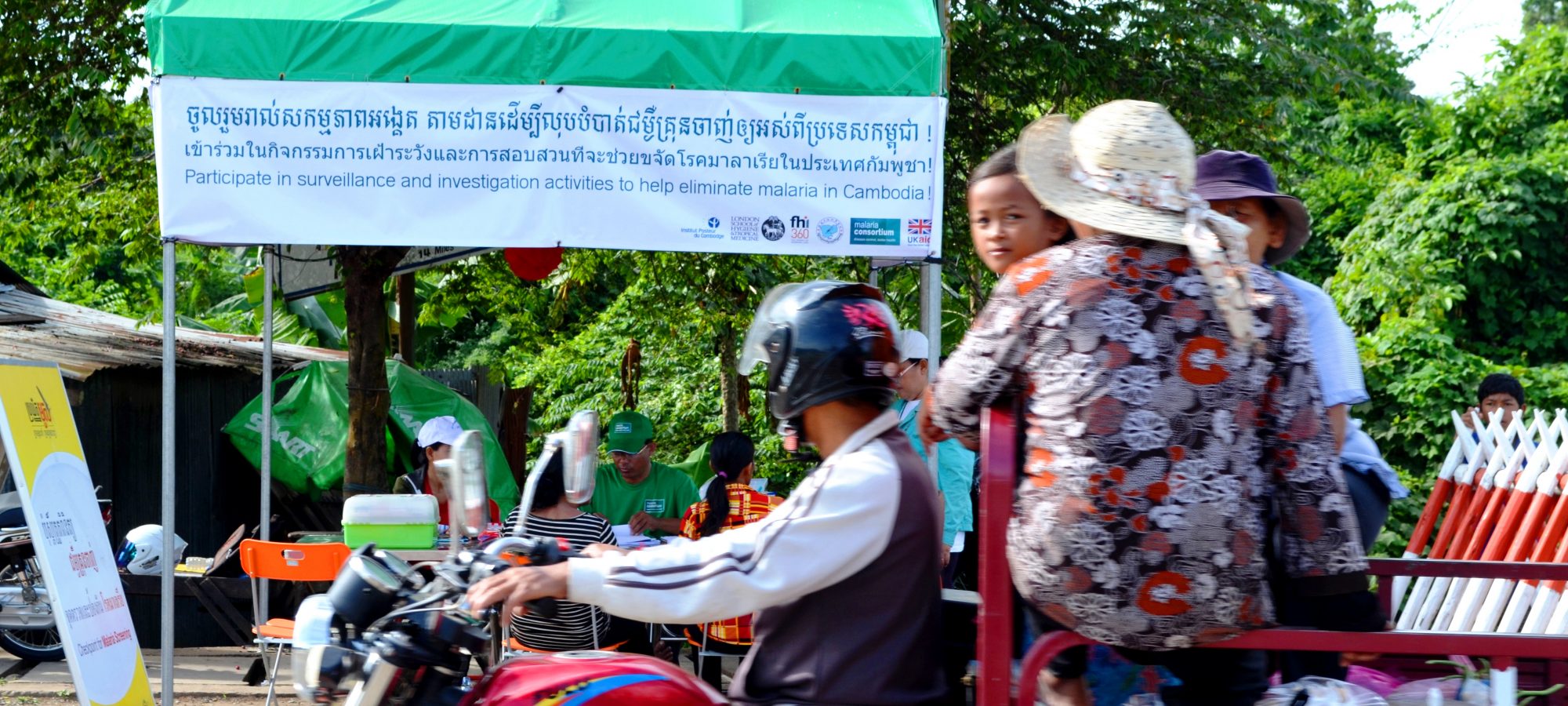The booth with its big banner catches your eye as you approach Phsar Prum, on the Cambodia border with Thailand. There are people there, clustered under the multi-language message about malaria and the colorful logos representing Malaria Consortium and our project partners. Once you pass through the checkpoint, a Malaria Consortium field assistant in a bright green jersey approaches, asking permission to talk with you about malaria, offering you a chance to be tested.
The team is good at what they do. The village chiefs, local health workers and the ‘Village and Mobile Malaria Workers’ are actively engaged and, though it’s only two weeks since the project launched, over 500 people have already been screened at checkpoints in Steung Treng, Rattanakiri and Pailin provinces.
“We explain very clearly what we are doing and why first, before they are asked to join,” says Malaria Consortium field assistant, Sokhoeun Chum. “At first some are scared about the finger prick, but when we explain, most agree to the test and are not worried about what we are going to do.”
All this activity is part of an innovative new study Malaria Consortium is leading focused on the special challenge Cambodia faces in identifying and treating migrants and other travelers, difficult-to-reach populations who may be at risk for malaria and transmission of drug-resistant parasites.
“It is the right thing to do in a right time for mobile and migrant people, and it is very important as a new approach for active case detection to do the screening at the cross borders,” adds Sophal Uth, field office coordinator, Malaria Consortium Pailin Field Office.
The goal? To develop a screening strategy that will help reduce the number of malaria parasites crossing Cambodia’s borders. Doing so could make a big contribution towards elimination of malaria and containment of drug resistance, goals of both Cambodia and the Greater Mekong Sub-Region. By locating check points in three different border provinces, this study presents a unique opportunity to compare and contrast their findings, enriching the strength of the recommendations that will be shared with the Cambodian National Programme for Parasitology, Entomology and Malaria Control (CNM) and others across the region next spring.
These early successes reflect careful planning, coordination and positive working relationships among individuals and organizations across Cambodia: the Ministry of Health and CNM; provincial government and health officials; police and immigration officers, village chiefs, village malaria workers, mobile malaria workers and local health workers; partner NGOs, like FHI360, Institut Pasteur du Cambodge and the London School of Hygiene & Tropical Medicine, as well as the project’s funder, the UK Department for International Development (UKaid).
